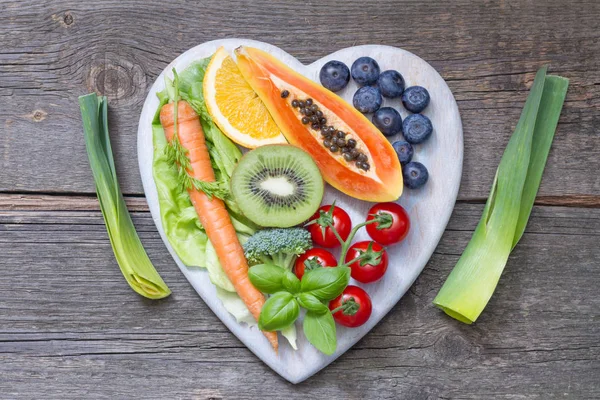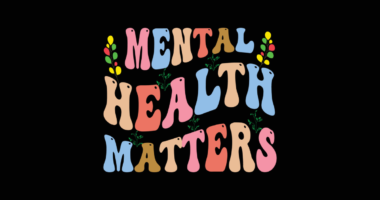- Eat Your Way to a Healthy Heart: A heart-healthy diet includes plenty of fruits, vegetables, whole grains, and lean protein.
- Foods like salmon, oats, olive oil, walnuts, almonds, chia seeds, and flaxseed are particularly beneficial for heart health.
- Limit your intake of high-fat dairy, fatty meats, processed foods, sugary drinks, and excessive sodium.
- Aim for at least 150 minutes of moderate exercise per week to further boost your heart health.
- Small, sustainable changes to your diet can make a big difference in your long-term cardiovascular health.
Want to keep your heart happy and healthy? What you eat plays a huge role. Think of your plate as a prescription for a stronger ticker, helping you manage blood sugar, slash cholesterol, and sidestep heart troubles down the road. Let’s explore how you can enjoy delicious foods while giving your heart some love.

What Does a Heart-Healthy Diet Look Like?
A heart-healthy diet isn’t about bland, boring meals. It’s about embracing a colorful variety of foods that nourish your body and protect your cardiovascular system. The American Heart Association (AHA) recommends loading up on fresh, fiber-rich fruits and vegetables, whole grains, and lean proteins such as nuts, skinless fish, and poultry. Eating with your heart in mind means being mindful of portion sizes and staying active.
“Heart-healthy eating focuses on reducing inflammation, managing cholesterol levels, supporting healthy blood pressure and maintaining overall vascular health,” explains Michelle Routhenstein, MS, RD, CDCES, CDN, Cardiology Dietitian at Entirely Nourished. “It prioritizes whole, minimally-processed foods rich in fiber, antioxidants, healthy fats and plant compounds.”
The Top Foods for Heart Health
Registered Dietitian Kayla Farrell suggests these foods consistently top the list when it comes to protecting your heart.
- Salmon and Tuna: These fish are packed with omega-3 fatty acids, which can help lower blood pressure and reduce the risk of heart rhythm disorders. If you’re not a fish fan, tofu can be a good alternative.
- Oats: Oats are rich in soluble fiber, which is especially helpful in lowering LDL cholesterol. Beta-glucans in oats interact with fats and biliary salts, which help eliminate cholesterol from the body. Oats can also improve blood sugar levels in people with type 2 diabetes.
- Olive Oil: This kitchen staple is full of antioxidants that help protect your blood vessels. Using olive oil instead of saturated fats like butter can help lower your cholesterol.
- Walnuts and Almonds: Just a small handful of these nuts each day can help lower your cholesterol and protect your heart’s arteries from inflammation. Walnuts also give you a boost of omega-3s.
- Chia Seeds: Chia seeds are a dietitian-approved, high-fiber snack loaded with nutrients. They contain both soluble and insoluble fiber, which promote gut health, prevent constipation, and provide a steady release of energy to prevent blood sugar spikes. Chia seeds also contain plant-based omega-3 fatty acids, which may promote heart health by lowering unfavorable LDL cholesterol and blood pressure.
More Heart-Healthy Superstars
Beyond the top five, plenty of other foods can help keep your heart in tip-top shape:
- Avocados: This creamy fruit is a great source of heart-healthy fats that can lower cholesterol and reduce your risk of heart disease.
- Black Beans: These beans are packed with antioxidants, folate, and magnesium, all of which can help lower your blood pressure. Be sure to rinse canned beans to remove extra salt.
- Cherries: These sweet fruits contain antioxidants that help protect your blood vessels and reduce inflammation.
- Dark Chocolate: Enjoying dark chocolate in moderation can help boost your heart health and lower your risk of heart disease, stroke, and diabetes. Choose dark chocolate with at least 70% cocoa to get the benefits.
- Dark Leafy Greens: Spinach, lettuce, arugula, bok choy, and mustard greens are packed with vitamins, minerals, and nitrates that help open blood vessels so oxygen-rich blood can reach your heart.
- Flaxseed: Flaxseeds are a tiny but mighty cholesterol-reducing food that you can easily incorporate into your diet. They are rich in omega-3 fats, which have anti-inflammatory properties and can help lower LDL cholesterol while raising HDL cholesterol and improving insulin secretion.
- Low-Fat Yogurt: Dairy can help control your blood pressure and keep your bones strong. Low-fat options help boost calcium intake while minimizing fat.
- Oranges: This citrus fruit is full of cholesterol-fighting fibers and potassium, which can help control or even lower your blood pressure.
- Beets: Beets are high in nitrates, which help keep blood vessels dilated and lower blood pressure. They are also packed with heart-healthy antioxidants.
What to Limit on a Heart-Healthy Diet
Just as important as knowing what to eat is knowing what to limit. The American Heart Association recommends avoiding foods high in sodium, saturated fat, and added sugars. Here are some specific foods to be mindful of:
- High-fat dairy products
- Fatty meats
- Processed meats
- Tropical oils and partially hydrogenated fats
- Processed foods
- Foods and beverages with added sugars
- Foods high in sodium
- Alcohol
The Bottom Line on Foods for Heart Health
Protecting your heart health doesn’t require drastic changes. By incorporating more heart-healthy foods into your diet and limiting those that can do harm, you can take significant steps toward a healthier you. Remember, it’s all about balance and making sustainable choices that you can enjoy for the long haul.
Also Read | Can You Reverse Type 2 Diabetes? See How Tabitha Did It in 3 Months










